Tableware that serves up alternatives
This is a special feature from PAX International's April World Travel Catering and Onboard Services Hamburg 2020 edition.

With the industry going through a major transformation, IN Air Travel Experience says there's an ongoing shift from product to experience
Most people in the airline industry are well accustomed by now to the conversations about sustainability, environmental footprint, and reducing waste and single-use plastics. With official legislation around the corner in many locations, such as the Europe Union’s impending ban on single-use plastics, it is no wonder these topics continue to stay hot. As the industry, however, shifts towards this new norm, suppliers are finding innovative ways to maintain a passenger-centric experience in the cabin, right down to tableware and serve ware.
A curated experience
Anne De Hauw, Founder of IN Air Travel Experience, sees the future of the cabin being heavily impacted by a number of current factors, including the shift from product to experience, passenger-centricity and digitalization.
“Environmental sustainability cuts across all of these, and rather than being a trend of transitory nature, it is the emergence of a new zeitgeist,” De Hauw tells PAX International. On one hand, passengers are becoming more and more aware of how their travel impacts the environment, but on the other, they expect that their inflight experience continues to improve – for example, in minimizing waste and the quality of the onboard food service. In turn, this drives suppliers and airlines to adjust their offerings.
Same goal, different opportunities
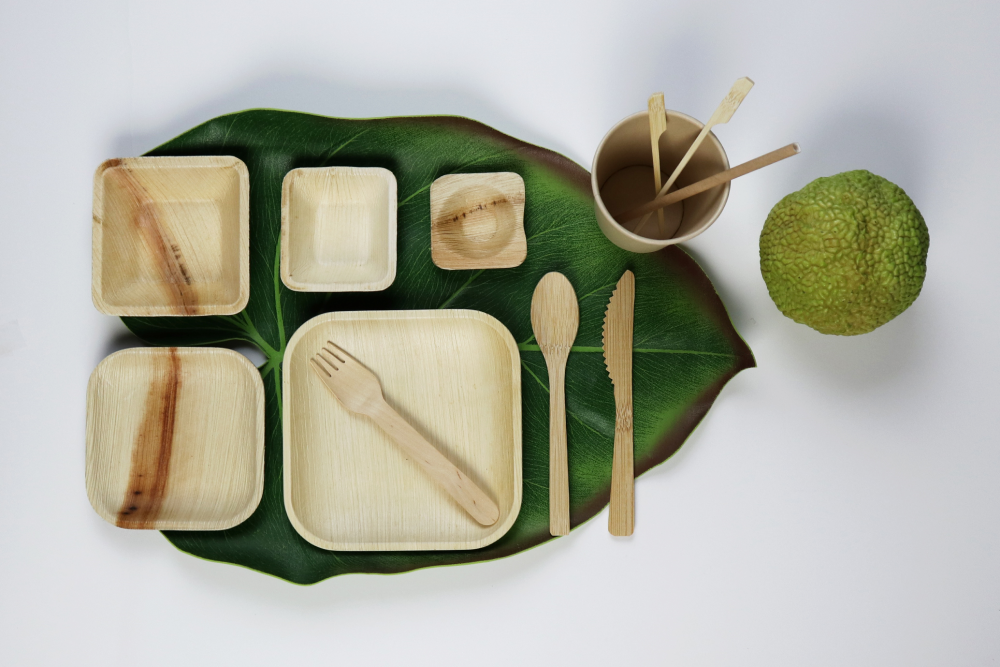
RMT Global Partners says the key is to have tableware components that fit together well but still offer options
RMT Global Partners has introduced its lightweight re-engineered silverware, which offsets fuel burn and carbon dioxide emissions, and polycarbonate glasses and plates - which look like glass but have an endless lifespan, standing up to commercial dishwashing. The tableware is purposely slim-lined for space efficiency on the aircraft.
RMT produces these innovations by listening to what problems the customer is trying to solve and developing the product to that specification. For example, in the case of designing a casserole dish, Robby Erbrick, RMT Director of Environmental Sustainability and Product Development says, the following is taken into account: a lip or edge so that it can be easily gripped when pulling the dish out of the oven. The weight of the dish is cut to reduce fuel burn and the material must be elegant but durable to withstand commercial dishwashing. Finally, the design should represent the image of the airline; focusing on a style or pattern from the airline's brand.
“The key is to have components that fit together nicely but have some flexibility,” says Erbrick. “If you don’t want to serve a dessert on a certain length of haul, you have the ability to remove a dish and the service still has a beautiful appearance on the tray,” he explains.
Erbrick says he’s noticing a trend towards using globally renowned designers to curate tableware, and to incorporate textured patterns to add depth to the design. There is also demand for natural colors, shades and designs, inspired, for example, by bamboo or kraft brown paper. “It is a great marketing tool for the airline as it leaves an impression on the customers,” he explains.
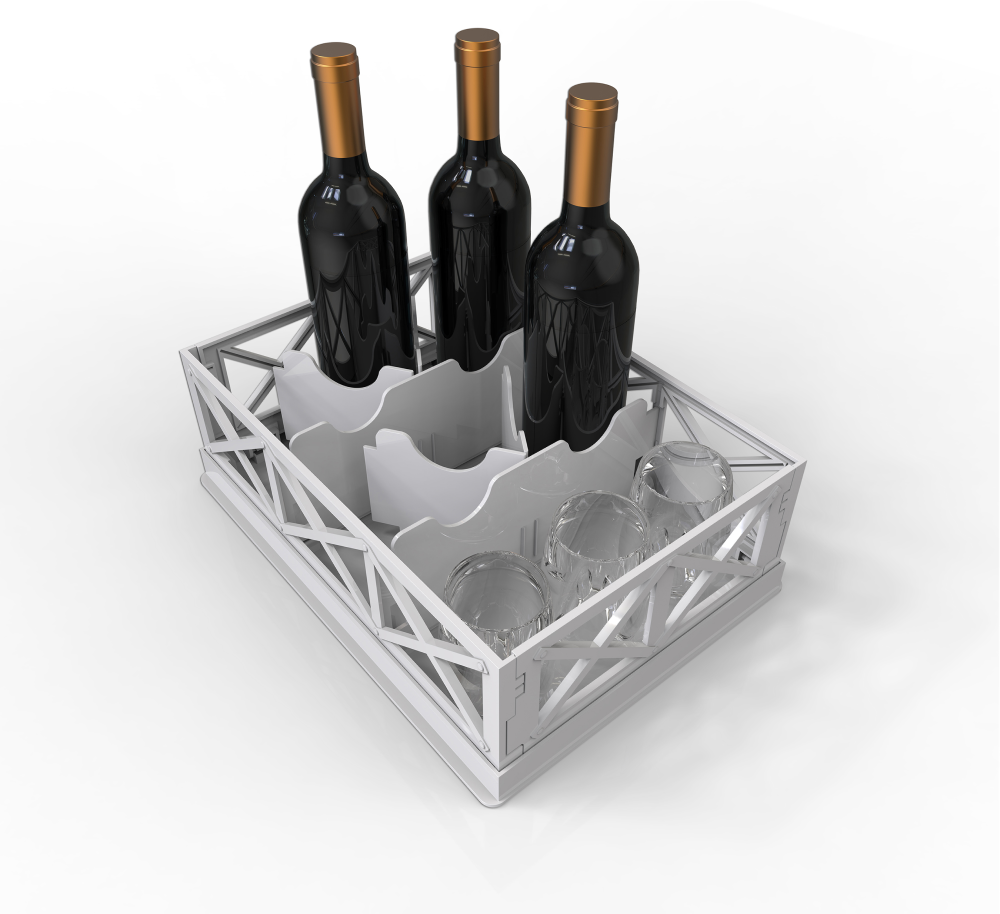
RMT Global Partners' collapsible wine drawer collapses flat for more galley cart space after drink service
Rotable solutions are still trending as they can be washed, reused and recycled, but suppliers still need to then factor in how much those items weigh and the impact on fuel consumption and other environmental factors.
Carriers are also interested in items that pack neat and compact into galley space, support flight attendants and maintain an elegant look for passengers. RMT’s cup holder tray maximizes space by allowing it to nest three trays into one cart glide space. Crew can easily serve drinks while keeping aisles free for passengers to move about during flight. Plus, any spills are contained in the cup space. The company’s collapsible wine drawer allows flight attendants to serve wine on their carts during meal and drink service, collapsing flat for more space in the galley cart after the service.
“There is no silver bullet that can be used to solve this problem we all face living on this planet,” Erbrick says. “RMT Global Partners is here to work with our customers and we are finding the best solutions that our current technology has to offer in order to combat climate change and help sustainable products become the go-to in years to come.”
For Kaelis, differentiating within the common trend of sustainability is important. Carriers are seeking original designs, interesting textures and colors, the company’s Chief Marketing Officer Fernanda Veiga tells PAX.
When asked what passengers are demanding from carriers, Veiga lists “beautiful designs” first, followed by, “less packaging” and “sustainable materials.”
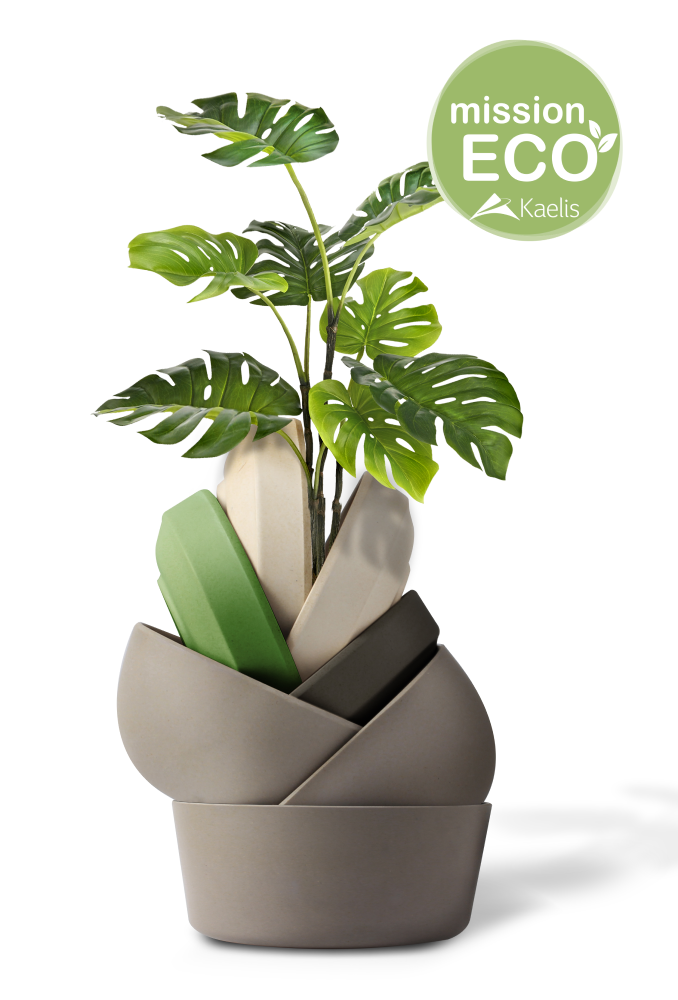
Kaelis notes carriers are looking for interesting textures and colors incorporated into sustainable tableware and serveware
The Bassú tray is a Kaelis innovation that incorporates all of the above. The reusable lightweight, ergonomic phone and tablet holder tray allows passengers to use their personal electronic devices hands-free during inflight food service.
“If you are considering ceramic products, it is also important to consider its weight,” Veiga notes.
The company designed an updated tableware set for Business Class cabins on all medium- and long-haul flights aboard Uzbekistan Airways in 2019. The 14-piece crockery features white tableware with a colored pattern, soft linens, uniquely-shaped glasses and dark tray inspired by traditional Uzbekistan buildings and architecture. The set contains a light blue butter dish, a side plate, bowl, main plate and cup with colors inspired by the region’s cotton flower.
Kaelis also recently created its Mission ECO program, which is a line of sustainable solutions. “This is a very important change in the right direction and it aligns with our business culture,” Veiga says.
Ditching disposables
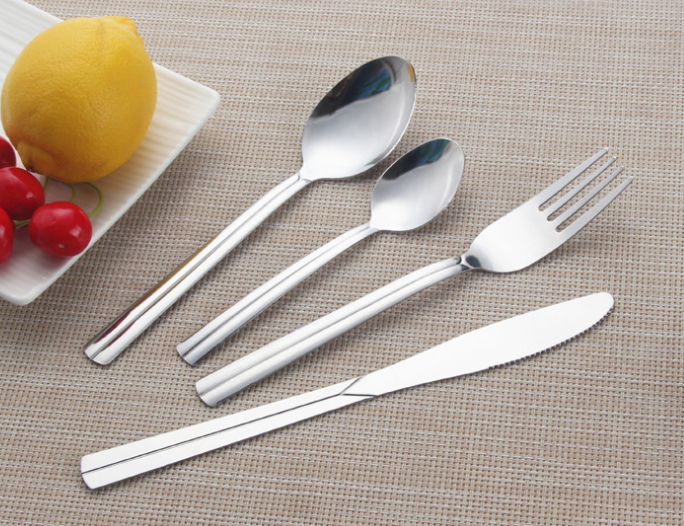
4Inflight International Limited replaced one of its airlines customer's disposable plastic cutlery
While single-use plastics were once considered the pinnacle of onboard hygiene, efficiency, and customer convenience, carriers are reverting to a more classic cutlery option, such as stainless steel, says Sandy Hsu, General Manager of 4Inflight International Limited.
The company recently replaced one of its airline customers’ disposable plastic cutlery. “Our product development team worked a few proposals out in a short time, including rotable plastic cutlery, PLA cutlery, wooden cutlery and lightweight stainless-steel cutlery,” explains Hsu. The client selected the stainless-steel option – which comes at the same cost as 4Inflight’s plastic cutlery. The company also offers PLA lids, PLA-coated paper cups and bagasse pulp containers.
A holistic approach
Some airlines are replacing a few current items to become more sustainable while others are taking an overall approach to the entire onboard meal service concept, says Philippe De Naeyer, Director of Sustainability & Product Development for gategroup’s deSter brand. For the latter, it includes eliminating items, using new materials, redesigning items and reconsidering the waste collection system.
And this, De Naeyer says, is a massive task. “Developing these products requires more research than ever before because the required solutions need material development, production process development and system innovation.”
When it comes to what clients are asking for in sustainable innovations, De Naeyer sums it up into three parts:
- Authenticity: give a clear and true answer to the sustainability challenges
- Ease of use: they should be convenient in use whilst providing the required performance and quality
- Sustainability: they should clearly contribute to the sustainable efforts of the airline
Inside-the-box innovations
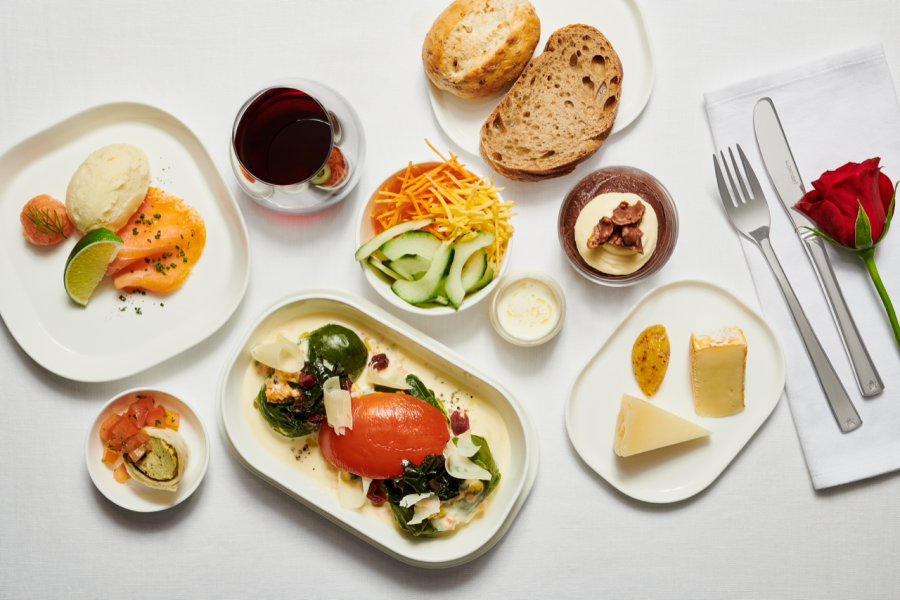
Clip launched new tableware for Swiss boutique leisure airline Edelweiss Air
“In addition to sustainability, new service concepts are being pushed to the forefront thus providing a platform for airlines to lead and provide exceptional passenger experience,” Cindy Lam, Director of Clip, explains. Airlines are focused on dine-on-demand, restaurant-style service with a “less is more” mentality. “Less equipment, healthier, wholesome foods combined with ease of use, more time for crew to engage with passengers,” Lam says.
As a design-led company, Clip looks to hotels, restaurants and the retail space when researching trends and materials for its tableware and serve ware innovations. “We are fully aware that what many restaurants can provide on the ground unfortunately is often not realistic or achievable for airlines. Therefore, we need to modify and re-work and redesign those ideas and make it workable in an airline cabin environment.The research and development never end. There are always new materials coming to market and we need to be proactive in our search and trending.”
Lam makes the point that even small steps make a big difference. The company launched new Business and Economy Class tableware for Swiss boutique leisure airline Edelweiss Air. The Economy set features a box that contains an appetizer and dessert, including the cutlery pack which is wrapped in a colorful banderole. The service eliminates the need for plastic lids as the box cover seals the food and there is no additional need for a tray liner because the lid can be used to place bread or main meal on top.
For Business Class, SiloxiHT ceramic is used. It portrays a clean, bone-like china look that impresses passengers at a reduced weight. The versatile design possibility of SiloxiHT offers lots of branding possibilities while the refined shapes and glazing enhance the passenger experience.
Going back to the start
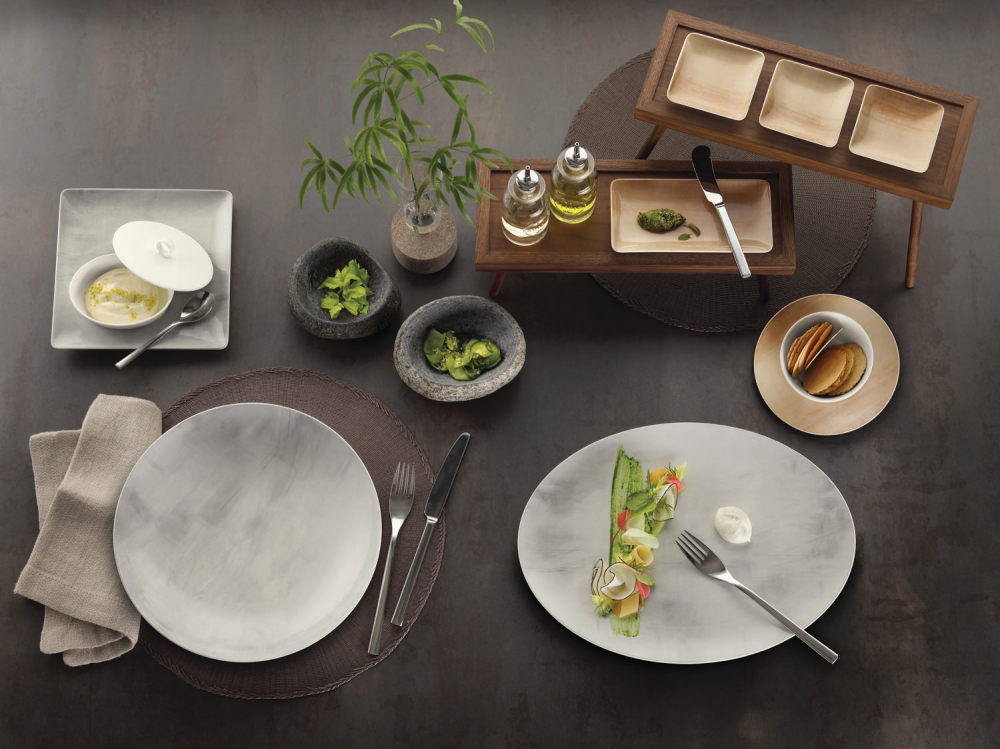
AMKO International notes a demand from csrriers for more stainless-steel flatware, glass drinkware and porcelain dinnerware
Young people who are flying now place more value on experience and impact than they do on brands, AMKO International Director Joseph Catarino says. The company has also seen a return to stainless-steel flatware, glass drinkware and porcelain dinnerware.
AMKO’s NEW-bone product range addresses the concerns of vegans and vegetarians by removing bone ash from the china. And, when it comes to flavor, porcelain is the best choice for dinnerware. “It neither absorbs no imparts flavors, leaving the food to taste just as it should,” Catarino says.
“The few carriers who rely on using expensive brands to design their service may not be doing their homework,” he adds.
To find out exactly what passengers, airlines, and crew are wanting in the future, Malton Inflight surveyed a number of carriers regarding tableware and serve ware on board. In the end, it found three main trends: legislation, customer awareness and new company environmental commitments, says Kirstie Derham, Marketing Executive, Malton Inflight. The company also reports to PAX that 70 percent of the airlines it surveyed identified biodegradable as the main capability they would like to see in new tableware and serve ware products.
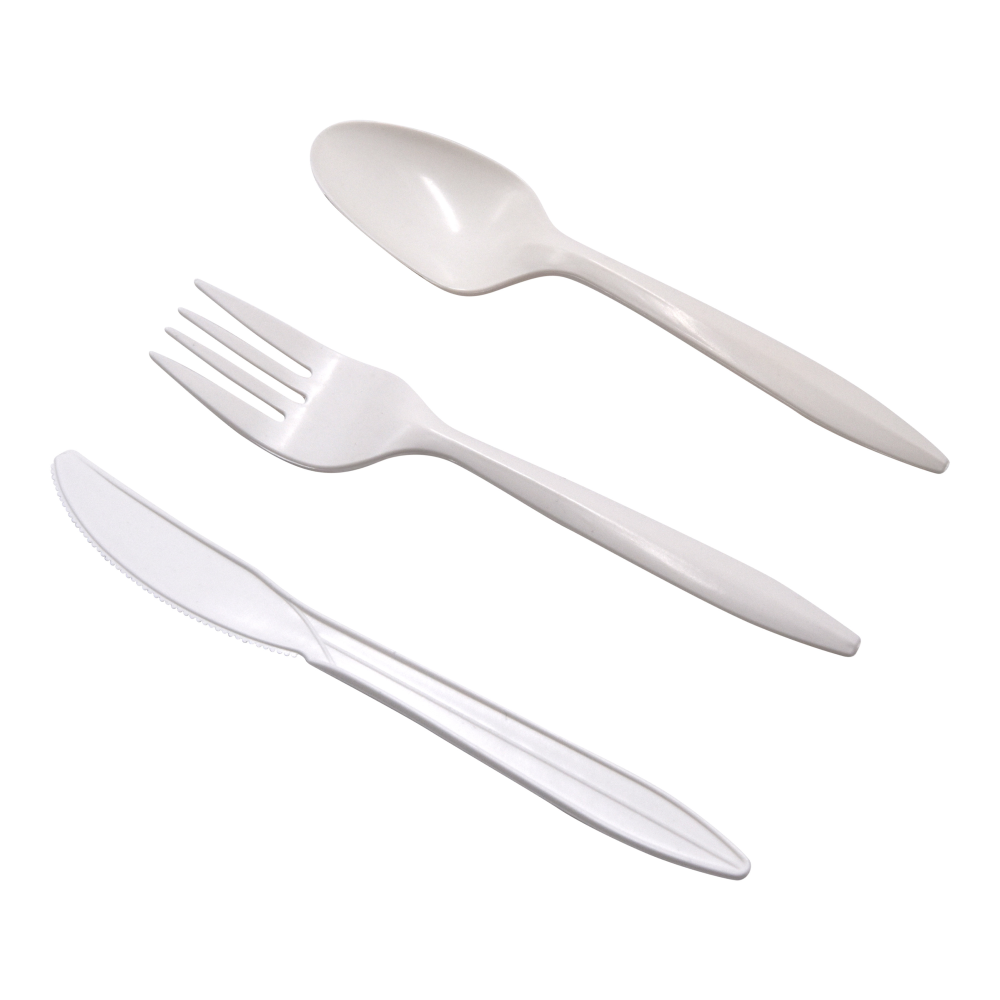
Malton Inflight creates corn starch cutlery
“Many airlines are now looking at the entire supply chain from source to serve, and this is where the true impact of the change will make a difference,” Derham says. “The movement has forced each stage of production to be looked at in detail and there is now greater emphasis on how a product will be handled by the crew, how it is disposed of in flight.”
In the future, Derham expects the biggest obstacles that would make airlines reluctant to change are; the cost to airlines; the ability for designers to replicate eco-friendly products without limitations; and, for the functionality of plastic alternatives to meet the demand of actual plastic. While the demand and change may be slow, Derham says it is a change that had to happen.

